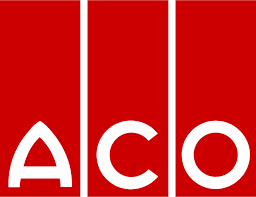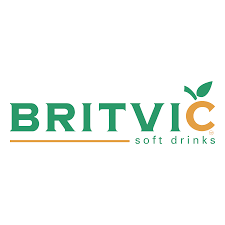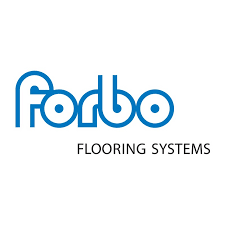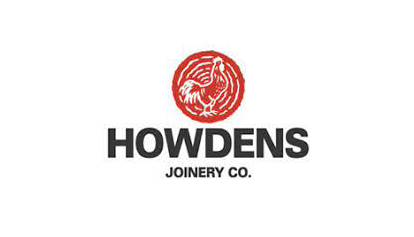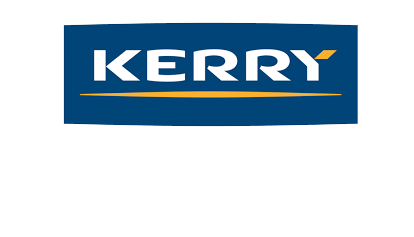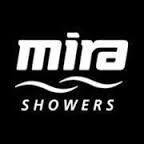Ratchet Up Performance

Ratchet up Performance category of training courses are for those engaged with the challenge of progressing beyond zero breakdowns to release the full potential of their people, plant and processes. That includes the development of engineering capabilities to progress from preventing downtime to preventing defects.
Performance Management For Manufacturing Leaders
- Details
- Parent Category: Courses
- Category: Ratchet Up Performance
- Dates: As Required
- Location: On Line, In Company
- Cost: £250 plus VAT for up to 8 delegates
This short on line awareness workshop is designed to both raise awareness and support planning to deliver the daily management best practices used by award winning and well respected organisations. These processes are at the heart of the capability to ratchet up performance through actions to simultaneously:
- Build shift/area team capabilities
- Develop insight and learning to underpin year on year improvement in effectiveness.
- Raise operational resilience and release time to proactively adapt to changes in new products, technology and statutory legislation
-
Why attend this workshop?
No matter how good you are today, striving to do better is an essential part of being competitive. Despite that, over 69% of manufacturers rate their current Performance Management process as not fit for purpose. As a result the skills to fully resolve problems and drive up performance are seldom developed.
This short training workshop is designed to assess and refine Performance Management skill gaps.
Learn what it takes to
Identify and resolve performance management skill gaps
Understand how to
Apply performance management skills to capture lessons learned and improve practices as part of the routine
Know how to
Create a leadership agenda that engages front line teams with delivering year on year performance improvement
Be able to
Raise standards and establish work routines that are easy to do right, difficult to do wrong and easy to learn.
Workshop AgendaIntroduction
The Performance Management Glide Path
- Understanding performance drivers and assessing potential.
- Setting realistic and achievable improvement targets.
- Developing Performance Management capability
Performance Management Review and Action
- Performance Enablers
- Area management best practice models
- Managing future performance
Raising Performance Standards
- Improving real time workflow and Normal Conditions.
- Creating organisational muscle memory
- Early warning feedback
Finding Answers That Matter
- Understanding cause and effect
- Establishing a creative pressure for change
- Coaching teams to develop effective solutions
Locking in the gains
- Dealing with the causes of recurring problems
- Understanding the wiring up behind behaviours
- Self Managed Teamwork
Setting the Leadership Agenda
- Priming the “Engagement” pump
- Cultivating a sense of pace
- Developing capabilities to meet future business needs
Review of the Workshop
- Benefits, Concerns, Next Steps
Who should attend?The workshop content is designed for those faced with the challenge of improving Performance Management added value. That includes:
- Business Sponsors and key managers
- Production and Maintenance leaders
- Operations and Support Personnel
- Change Agents and CI Facilitators
Workshop LeaderThe workshop will be led by Dennis McCarthy
Dennis began his career as an industrial engineer progressing into general management and director level roles. As a consultant he has helped well- respected and award winning organisations to accelerate the pace of improvement. This includes support for internal teams meeting challenges ranging from underperforming assets to company-wide multi-site transformation programmes in Europe, Australia, USA, India and China.
TPM Best Practice Leadership
- Details
- Parent Category: Courses
- Category: Ratchet Up Performance
- Dates: 3 day training workshop
- Location: In Company Course
- Cost: £4500 up to 10 Delegates
This is a course designed to provide Operational Leaders with a "how to guide" to build on existing good practices and progress towards zero breakdowns and then no touch production.
At the heart of this TPM glide path is the systematic development of front line team and team leader capabilities. The outcomes are higher levels of effectiveness, increased capacity, flexibility and lower costs. As important are the gains made by releasing Leader and Specialist time to focus on future growth.
- Learn how to Ratchet up effectiveness as part of the daily routine
- Understand The TPM improvement glide path and leadership role making progress along it
- Know how to use TPM to develop cross functional high performance teamwork
- Be able to develop a practical programme to deliver zero breakdowns and optimised asset effectiveness.
-
Course Overview
The Route Map to Zero Breakdowns and Beyond
This is a course designed to provide Operational Leaders with a "how to guide" that positions where you are today and how to make progress towards zero breakdowns and then no touch production.
The success of TPM is due to the recognition that few of the problems which impact on reliability can be resolved by purely technical improvements. At the heart of this TPM glide path is a Leadership journey to systematically develop the front line team and team leader capabilities in the table below.
Capability
Competence
1A: Maintain basic conditions
Able to reduce accelerated wear and set standards to sustain basic conditions
1B: Prevent mis operation
Able to simplify complex processes to make it easy to do right, and easy to learn
2A/B: Enhance process control. Reduce need for technical judgement.
Run trials, enhance process control, upgrade visual indicators, transfer routine tasks to front line team.
3A/B: Improve operability and maintainability
Able to systematically reduce the number of unplanned and then planned interventions
4A/B: Deliver new asset capabilities
Able to target capital investment to deliver a step change precision, material yield and reduce quality defects.
Table 1: Front line team and team leader competency development steps
Course topics include how to develop teams through these competency levels and how to fundamentally change the work environment from reactive to proactive. The outcomes are higher levels of effectiveness, increased capacity, flexibility and lower costs.
As important is how to use the gains made to release time for leaders to focus on future growth and for support functions roles to step out of the policing role to one of guiding progress towards the full potential of the value adding process. .
The course includes the use of a TPM review framework to benchmark the current status and develop a practical leadership agenda to guide progress towards first stable and then optimised operational performance.
That includes practical processes to lock in the gains and redirect specialist and management time to make better use of their knowledge and experience.
Why attend this workshop?Why attend?
Participants will:
- Learn how to systematically stabilise and ratchet up effectiveness as part of the daily management routine.
- Understand How to assess current practices and identify practical improvement actions.
- Know how to engage front line teams with systematic development of capabilities to deliver year on year improvement of asset effectiveness.
- Be able to develop a practical programme to deliver zero breakdowns and systematic improvement in operational effectiveness.
Who should attend?
The workshop content is designed to provide practical support for those meeting the challenge of taming technology and ratcheting up performance that includes:
- Business Sponsors
- Production and Maintenance Managers
- Team Leaders
- Production and Maintenance specialists
- Change agents
Workshop AgendaDAY 1
- Introduction
- TPM principles and techniques:
- What goes wrong
- What can be achieved.
- How to get there.
- Targeting waste and hidden losses, A leadership guide:
- OEE Simulation.
- TPM Diagnostic/Gap Analysis.
- Defining the OEE improvement glide path.
- Raising Performance Standards:
- The wiring up behind behaviours.
- Facilitation and coaching.
- Leadership and the engagement agenda.
- Asset Improvement Plan Toolbox:
- Visualise – Understanding criticality and the trouble map priorities.
- Restore – Setting standards and preventing accelerated deterioration.
- Innovate – Raising standards and process control.
- Focussed improvement tactics:
- Improving Reliability.
- Encouraging improvement pull and engagement
- Where Digital Connectivity can accelerate the gains.
DAY 2
- Recap
- Reliability:
- The Foundations for Zero Breakdowns.
- The Cross Functional Agenda.
- Locking in the gains.
- Daily Management:
- Review and action glide path.
- Problem observation and effective countermeasures.
- Setting the improvement agenda
- Developing skill development skills:
- Best practice development.
- Learning and Skill development.
- Compliance, feedback and systemisation.
- Lean Maintenance:
- Setting Priorities.
- Process and workflow optimisation.
- Towards zero defects.
DAY 3
- Recap
- Manufacturing Project Leadership:
- Raising Maintainability, Operability, Reliability and Safety standards.
- Developing Superior Specifications.
- Capital Project Delivery for Flawless Operation from Day 1.
- TPM programme design:
- The improvement leader network.
- Policy organisation and promotion.
- Managing the improvement programme.
- Action plan development:
- Revisiting the TPM vision.
- Defining realistic and achievable 12 month planned outcomes.
- Developing the 90 day improvement cycle.
- Review of the Workshop
Workshop LeaderThe workshop will be led by Dennis McCarthy.
Dennis has supported Total Productive Maintenance, Lean Thinking and Continuous improvement programmes ranging in size from small single site applications to company-wide multi-site transformation programmes in Europe, USA, India, China and Australia.

Developing First Line Leadership Skills
- Details
- Parent Category: Courses
- Category: Ratchet Up Performance
- Dates: As Required
- Location: Online, In Company (4 Session On Line Live Training Sessions)
- Cost: £3000 up to 10 Delegates
First Line Leaders are at the heart of any organisations ability to deliver value to customers. They are the ones who can make an organisation run like clockwork. As customer expectations ratchet up and the pace of technology accelerates, their role is evolving. This training workshop will provide participants with a road map to equip First Line leaders with the knowledge and skills to drive practical changes through their teams.
-
Overview
That includes
- Front line leaders who want to take stock of strengths and weaknesses.
- Aspiring Front Line Leaders who want to understand what it takes to succeed in the role.
- Those meeting the challenge of developing the next generation of Front Line leaders.
The course approach includes the use of case studies and exercises to:
- Understand the scope of the role and develop a personal inventory of strengths and gaps to work on.
• Recognise the barriers to best practice and preventing the gains from slipping away.
• Identifying opportunities, gaining support and developing the justification.
• Engaging the front line with change
• Creating a bespoke local area roadmap to incorporate into daily management
A course developed to equip Front Line Leaders to achieve:
- Workforce Engagement.
- Technology understanding.Team based skill portfolio design.
- Standardisation of work routines.
- Integrated supply chain and workflow planning.
Why Attend?The workshop provides team leaders, change agents, technicians and business sponsors with a practical road map to deliver and lock in the gains from joined up work processes and workforce engagement.
Participants will learn how to
By the end of the workshop, delegates will be able to:
- Identify the barriers to best practice and how to deal with them.
- Develop practical road maps and identify the key success factors to deliver the potential gains.
- Establish realistic and achievable targets and guide teams on their journey towards year on year performance improvement.
- Coach and engage direct reports to embed best practice wisdom into daily routines.
- Refine technology controls to simplify process stability and consistency.
- Support the development of work routines that are easy to do right, difficult to do wrong and simple to learn.
Who should attend?
The course content is designed to set out the team leader role in surfacing and resolving pain points to deliver gains from improved connectivity. That includes
- Team Leaders
- Change agents
- Operational Technology Engineers
- Business Sponsors
- Project managers
AgendaSession 1
- Introduction, what do you want to achieve, personal goals and challenges
- The front line reality and the challenges of the changing team leader role
- Team and team leader roles
- The changing Front line Leader landscape
- Organiser, Analyst, Trainer, Coach, Ambassador, Communicator.
Session 2
- Case Study Part 1: The traditional front line reality and the pressure for change.
- Recognising pain points:
- Procedures and work routines.
- Job design and team skill profile.
- Change management.
- Understanding barriers to best practice preventing gains from slipping away
Session 3
- Case study part 2: Using data to drive up best practice standards
- Lessons learned - Applicability to
- Envisioning future change:
- Team, team leader, shift teams, cross functional collaboration, supply chain
- Identifying opportunities, gaining support and developing the justification
- The pilot process goals and road map
- Engaging the front line with change
- Using pilot projects to refine and validate proof of concept/Justification
- Start small, learn fast
- Learning from failures, recognising success
Session 4
- Daily management – Creating a new front line reality
- Workplace learning
- Coaching and compliance
- Communicating results
- Locking in the gains
- Making further progress.
- Forward planning
- Long term vision
- 12 month plan
- 90 day programme
Review of the WorkshopThe workshop will be led by Graham Cooper.
Graham’s approach to management and Front line leader coaching is based on the lessons learned from running a multi award winning site for over 20 years.
On their journey they were one of the first UK companies to gain accreditation under ISO 50001 Energy standards. The gains from this were then shared with the rest of the organisation.
Under Grahams guidance over the next 5-6 years they stripped out approaching €15 million of annual energy and chemical expenditure from the world wide estate. Part of which came from tapping into advances in digitisation and industry 4.0 techniques at minimal cost.
Front Line Skill Development
- Details
- Parent Category: Courses
- Category: Ratchet Up Performance
- Dates: 2 day course
- Location: In company
- Cost: £3000 up to 10 Delegates
In Manufacturing and Process plants, the most common causes of lost performance and wasted effort are front line skill and knowledge gaps.
Although this is often seen as a problem for trainers to deal with, the causes of the problem include the way in which tasks are defined, how standards are set and the how skill levels are categorised.
Effective skill development involves feedback from trainers and collaboration with those involved in setting standards and defining skill levels to enhance the pace of learning and compliance.
The course leads delegates through training and skill development best practices to build internal capabilities to meet current and future business needs.
-
Workshop Overview
The course content covers the four linked processes that impact on the pace and quality of front line skill development. That includes the use of practical exercises and syndicate sessions to apply best practices to skill development process steps including:
- Task Definition
- Including work instruction design to accelerate learning
- Learning Plan Design
- At asset and individual levels
- Training and Compliance
- Including methods improvement and standardisation
- Systemise and Sustain Routines
- Including spaced learning and review protocols
Why Attend?Through the course, delegates will learn to:
- Recognise common barriers to skill development and how to overcome them
- Understand how to evaluate task and team level competence
- Know how to create practical learning pathways and training plans to systematically build front line team competencies
- Be able to Organise skill development processes that support shared learning and progress towards work routines that are easy to do right, difficult to do wrong and simple to learn.
Who should attend?- Trainers,
- Subject matter experts and Industrial Engineers,
- Production Managers, Supervisors and Team Leaders,
- Change agents,
- It is also relevant for Anyone with direct reports who wants to make best use of skills and develop the potential of their team.
Course AgendaDAY 1
Introduction- How to measure the Skill Development Process Effectiveness
- Common skill development barriers and how to avoid them.
Task effectiveness
- What needs to be achieved in the fewest steps with least impact on other activities.
- Basic transformations and whole tasks,
- Task Visualisation,
- Task design and motivation,
- First review checklist (What does good look like?),
- Assess current task hot spot.
Learning plan design
- Communicating what is needed and the steps to develop capabilities to complete the task when required
- Task categorisation (Core, intermediate and specialist),
- Team skills profile,
- Integrating tasks into workflow,
- Workplace organisation,
- Learning Plan design,
- Second review checklist (What does good look like?),
- Assess current learning process.
DAY 2
Recap
Training and Compliance- Establishing the new task as part of the routine.
- Training programme design,
- Training process,
- Train the trainer and assessor,
- Training steps 1&2,
- Confirm competence,
- Confirming compliance,
- Refining work routines,
- Third review checklist (What does good look like).
- Assess current training process.
Systemise and Sustain routines
- Learning from experience to refine the work routine and systematically raise standards.
- o Raising front line team capability,
- o Learning and the wiring up behind behaviours,
- o Learning and unlearning,
- o Reinforcing skills (Spaced learning),
- o New asset skill development steps
- Assess skill development effectiveness
- Identify gaps and drivers,
- Prioritise task review list.
Developing a practical 90 day action plan
- Developing a vision the team can get behind
- Defining a realistic and achievable 12 month outcome
- Quarterly workplace learning process design
- Next steps
Review of the Workshop
- Benefits, Concerns, Q&A
Workshop LeaderDennis McCarthy
Dennis began his career as an industrial engineer progressing into general management and director level roles. As a consultant he has helped well- respected and award winning organisations to accelerate the pace of improvement. This includes support for internal teams meeting challenges ranging from underperforming assets to company-wide multi-site transformation programmes in Europe, Australia, USA, India and China.
- Task Definition
Lean Maintenance Strategy Workshop
- Details
- Parent Category: Courses
- Category: Ratchet Up Performance
- Dates: 3 day practical training workshop
- Location: In Company Course
- Cost: £4500 up to 10 Delegates
This 3 day training workshop sets out how to apply Lean thinking to the maintenance activity. The course content includes a review of current practices against Lean Maintenance benchmarks to support the development of Lean Maintenance plans that build on current practices to improve maintenance workflow, skill profiles, data analysis, process optimisation and engineering project added value.
- Learn how current maintenance practices compare with best in class maintenance standards
- Understand where there are gaps and how that impacts on maintenance value
- Know how to resolve those gaps and justify actions to do so
- Be able to develop a forward programme to deliver the gains from adopting a Lean Maintenance approach.
In addition to improving workflow and extending component life, Lean Maintenance releases Maintainer value adding potential to reduce quality defects and resource usage whilst increasing capacity and flexibility to shifts in demand.
-
Overview
Learn how apply the Lean Maintenance Road Map to build on existing good practices and improve:
- Maintenance execution through standard work that:
- Removes the causes of accelerated wear and human error.
- Improves working methods, speeds up skill development and simplifies spares management.
- Process optimisation using Lean Workflow Management, Data Analysis and Problem Prevention tools to
- Stabilise and extend component life
- Improve resilience to shifts in demand
- Project management of shutdowns or the introduction of new equipment, systems, products and services.
The content includes lessons from well known and award winning organisations to explain how engaging Maintenance within a Lean programme can deliver as much as 50% more in terms of year on year gains.
Through the workshop delegates will:
- Learn how current maintenance practices compare with best in class maintenance standards
- Understand where there are gaps and how that impacts on maintenance value
- Know how to resolve those gaps and justify actions to do so
- Be able to develop a forward programme to deliver the gains from adopting a Lean Maintenance approach.
Delegates will take away a comprehensive workbook containing briefing notes and supporting templates so that they can carry out the review process in the future.
Who Should Attend?Engineering and Maintenance leaders, Lean champions, Facilitators and First Line Managers and key maintenance personnel with an interest in increasing their understanding of how to release the full potential of the maintenance function.
Workshop AgendaAssessing Current Status and Future Demands
- Introductions and programme overview
- Assessing maintenance processes
- The role of maintenance (Preventive, Corrective, Optimise)
- Measuring equipment and departmental performance
- Digitisation and the changing landscape of maintenance engineering
Lean Maintenance Simulation
- Team based improvement glide path comparison:
- Traditional Maintenance
- Lean Maintenance
Managing Maintenance Value
- Maintenance value for money
- Loss tree analysis
- Maintenance impact on Manufacturing Cost and Value
- Management and leadership tools to secure improvement
- Cultural drivers and engagement
- Gap Analysis
- Setting equipment condition and maintenance standards
- Accountabilities
- Skill Development
- Learning and compliance
Developing Maintenance Standards
- Setting standards and standard work
- Stabilising performance
- Focussed improvement
Delivering Focussed Improvement
- The annual maintenance plan
- Maintenance controls
- Daily management, data and analysis
- Recording, observation and problem prevention
- Sharing best practice and education
Action Planning
- Developing a maintenance improvement programme
- Next 90-day action plan
Workshop LeaderWorkshop Leader - Dennis McCarthy
An author of 2 books on CI, Dennis' career includes positions in both general management and consultancy. Described by one senior international manager as a true "Sensei of Change" he has guided continuous improvement programmes ranging in size from small single site applications to company-wide multi-site transformation programmes.
This has included support for well-respected and award winning companies such as 3M, Ford, General Motors, GE, IKEA, Heineken and Johnson Matthey across Europe, India, USA, China and Japan.
- Maintenance execution through standard work that:
Implementing Lean Maintenance
- Details
- Parent Category: Courses
- Category: Ratchet Up Performance
- Dates: 3 day training workshop
- Location: In Company Course
- Cost: £4500 up to 10 Delegates
Enhancing Maintenance Added Value
(In house training workshop)
Pick up to 3 troublesome assets and during this 3 day accelerator workshop, delegates will apply the Lean Maintenance workbook to them to systematically assess the current shop floor reality against best practice benchmarks. This includes practical team based, shop floor activities to apply:
- Lean Asset Care covering preventive maintenance, inspection and servicing routines,
- Lean Execution covering standardisation, systemised workflows and engagement,
- Lean Maintenance Centre of Excellence covering skill development, performance management, focussed improvement and engagement.
In addition to improving asset reliability they will identify how to refocus the time released to enhance process effectiveness, resilience and flexibility. That includes adapting work routines to take advantage of advances in technology and digitisation.
Applying Lean Maintenance within a Lean, TPM or Six Sigma programme has been shown to increase annualised gains by as much as 50%.
-
Overview
This workshop provides a step by step guide to Lean Maintenance practices capable of delivering high levels of reliability and of releasing the value adding capability of the maintenance function to:
- Systematically reduce recurring breakdowns and increase equipment effectiveness.
- Increase machine reliability, optimise maintenance schedules and release maintainer resource to undertake value adding engineering improvements.
- Develop maintenance skills and site preventive maintenance capability.
- Improve data driven decision making through better use of CMMS systems and processes.
- Establish a common continuous improvement "mind-set" across all operational functions.
The workshop content includes an overview of improvement tactics such as TPM, RCM, CBM and Quality Maintenance and Computer Maintenance Management Systems (CMMS).
Delegates will use a comprehensive workbook containing briefing notes and supporting templates to assess current practices against Lean Maintenance benchmarks for best practice.
Who should attend?The course is designed to mobilise maintenance improvement team activities and support the evolution of best practice to achieve high levels of reliability with minimum effort. The content is relevant to:
- Engineering and Maintenance Leaders,
- Lean Champions,
- Facilitators and Change Agents
- First Line Managers
- Key maintenance personnel with an interest in increasing their understanding of how to release the full potential of the maintenance function.
The course is also recommended for those following the DAK Leader Guide to reduce minor stops and quality defects.
Workshop AgendaDay 1:
- Introduction:
- Learning goals and agenda.
- The power of Lean/Systems Thinking.
- Lean Manufacturing and Lean Maintenance.
- Lean Maintenance Added Value:
- Preventive, Corrective, Process Quality,
- Industry 4.0 and the changing landscape of maintenance engineering.
- Lean Maintenance Added Value:
- Lean Maintenance Process
- Lean Asset.
- Lean Execution.
- Lean Centre of Excellence
- Mini Pilot Session 1: Lean Asset
- Establishing Basic condition standards:
- Condition appraisal and refurbishment planning,
- Asset Care Standards:
- Prevention,
- Inspection,
- Servicing.
- Dealing with accelerated wear hot spots:
- Contamination,
- Human error.
- Skill development and compliance.
- Establishing Basic condition standards:
Day 2
- Mini Pilot Session 2: Lean Execution
- Stores:
- Planning, scheduling and work control,
- Lubrication,
- Work in progress.
- Performance Management:
- Cultural drivers and engagement,
- Early Problem Detection,
- Trouble shooting algorithms.
- Use of data:
- Spares management,
- Recording, observation and problem prevention,
- CMMS.
- Mini Pilot Session 3: Lean Maintenance Centre of Excellence
- Standardising best practice:
- Core and Intermediate task characterisation,
- Visual management,
- Problem Prevention.
- Systemising work routines:
- Enhancing workflow,
- Improving flexibility,
- Stoppage analysis and resolution.
Day 3
- Feedback.
- Mini Pilot Session 4: Lean Maintenance
- Lean Maintenance Maturity Assessment.
- Action Planning
- 3-5 years.
- 12 month goals.
- 90-day action plan.
- Review of the workshop.
Course LeaderThe workshop will be led by Dennis McCarthy. Dennis has supported Total Productive Maintenance, Lean Thinking and Continuous Improvement programmes ranging in size from small single site applications to company-wide multi-site transformation programmes in Europe, USA, India and China. This has included support for well- respected and award winning companies such as 3M, Ford, General Motors, GE, RHM and Dow Corning.
Dennis co-authored Lean TPM a blueprint for change”, with Nick Rich of Cardiff University Business School. Published by Butterworth Heinemann. He also wrote Early Equipment Management, “Continuous improvement for projects” published by Productivity Press. Engineering aspects from both books feature in this course.
Writing Practical Maintenance Routines
- Details
- Parent Category: Courses
- Category: Ratchet Up Performance
- Dates: 24th to 26th January 2023
- Location: Newcastle
- Cost: £1150.00 + VAT - 2nd delegate half price
This 3 day training workshop sets out how to create Planned Maintenance routines that are robust, quick to develop and easy to apply.
The course content also covers setting standards to support the enhancement of current work instructions to achieve high levels of reliability and removes non value adding routines.
That includes how to engage Engineers with proactively seeking out better ways of completing work routines as well as capturing and sharing lessons learned to enhance asset maintainability.
-
Workshop goals: Develop capabilities to
- Write concise and unambiguous task instructions
- Set realistic objectives for maintenance tasks
- Establish and sustain and standards of maintenance
- Identify failure patterns and appropriate maintenance to combat them
- Define the frequency of maintenance tasks
- Develop effective asset care plans and maintenance routines
Why attend this workshop?The course content will provide delegates with an insight into best practice work routine development
Delegates will learn how to assess the quality of current practices and how to enhance weak, missing or overly complex work routines.
This targets the most common causes of lost performance, defects in a way that engages engineers in capturing and sharing lessons learned to enhance insight and remove non value adding practices.
The workshop includes case studies and exercises to support the development of customised action plans to develop work routines that are easy to do right, difficult to do wrong and simple to learn.
Workshop AgendaWhy Maintenance?
Maintenance scope
- Sustain, Ensure, Combat
- Types of failure and countermeasures
- Tasks.
- Maintenance standards (PAS55, ISO 55000)
Maintenance Strategies
Impact and influence
Planned
- Asset life cycle considerations
- Safe limits
- Maintenance intervals
- Understanding failure
Corrective
- Restore condition
- MTBF, MTTR
Designing Maintenance Routines
- Asset categories
- Asset life and that of any limiting components
- Failure pattern(s) the asset or its components might demonstrate
- Compliance requirements
- Historic performance - availability and reliability
- Deterioration characteristics
- Maintainability (access, spares, tools, skills required)
- Generic to equipment type and operation
- Specific (to equipment sighting/ method of operation, etc)
- Failure modes,
- Feasibility and cost effectiveness of tasks
- Useful life or that of any limiting components failure pattern(s) the asset or its components might demonstrate
Writing Maintenance Routines
- Asset care plans
- Terminology
- Key term definition
- Standardising work instructions:
- Visual indicators
- Setting condition standards
Improving Routines
- Assessing PM value added
- Refining PM working methods
- Improving maintainability
- Preventing recurring problems
Action Planning
- Priorities for action
- 90 day plan development
Review of the workshop and close
Who Should Attend?The course is designed to meet the needs of maintenance professionals, personnel from functions that rely on effective maintenance planning, scheduling and work packet control and change agents tasked with improving the maintenance value for money.
These include:
- Maintenance Planners/deputies, Maintenance Managers and supervisors
- Key leaders from each Maintenance craft, CMMD administrators and key users
- Key Operations Supervisors
- Maintenance support assistants
- Change agents and engineering business sponsors
Workshop LeaderThe workshop will be led by Colin Sanders. Colin served a Royal Air Force apprenticeship as an aircraft mechanical engineering technician. After serving his apprenticeship he progressed through trade (Licentiateship of City & Guilds) and supervisory management development (MISM, management and instructor training) to become a senior operational manager and planner.
As a consultant Colin has supported maintenance improvement and change management programmes as a project manager, advisor, and facilitator in a range of operational excellence projects. He has extended his consultancy experience to include the application of business process reengineering and implementation of performance measurement to clarify operations and maintenance accountabilities and support the delivery of business improvement goals.
Industry experience includes food manufacturing and processing, engineering, medical supplies and steel fabrication. This has included working with well respected and award winning companies such as Glanbia, Kepak, Johnson and Johnson and AEA Technology.
Ratcheting up OEE Performance
- Details
- Parent Category: Courses
- Category: Ratchet Up Performance
- Dates: 1 day training course
- Location: In Company Course
- Cost: £1500
This 1 day workshop provides a train the trainer and Overall Equipment Effectiveness (OEE) "how to" primer on reducing hidden losses and wastes. It sets out how to use OEE to drive changes in working practices and technical standards as a way of securing year on year sustained improvement in performance.
Post course support can include online coaching to support personal development goals and the application of Focused Improvement tactics.
-
Learning Goals
- Learn about the common causes of asset underperformance and how to guide front line teams towards stable operation
- Understand how OEE measurement and analysis can be fine tuned to clarify improvement priorities and business benefits;
- Know how to develop the potential of front line teams and support departments to deliver systematic year on year OEE improvement.
- Be able to underpin OEE improvement through area work routines that lock in changes so that they become part of the routine
Who should attend?This workshop is designed to meet the needs of improvement leaders and change agents tasked with the challenge of delivering sustained improvement in equipment effectiveness. This includes:
- Team leaders and supervisors
- Change agents and trainers
- Improvement leaders at front line, departmental and senior management levels
- Engineers and technicians.
- Production support, planners and coordinators.
The workshop content is designed to support either manual or software based OEE systems.
TopicsSetting asset improvement priorities and tactics
- OEE desktop simulation
- Understanding OEE trends
- Defining the value of OEE improvement
- OEE performance tracking, review and action
What front line teams need to learn
- Expains how to incorporate 4 key front line team learning and development modules as part of team based workplace learning projects.
- Includes train the trainer materials
Facilitating Improvement Teams
- 3 skill development modules set out a skills inventory and practical learning and development plan for improvement leaders.
- This provides a framework to guide self learning and the transfer of lessons learned back to the workplace covering:
- The wiring up behind behaviours
- Facilitation styles
- Coaching and mentoring roles
- Team project management
ActionPlanning
- Setting improvement goals
- Improvement team process/Project design
- 90-day action plan
The Lean Culture Revolution: People Centric Leadership
- Details
- Parent Category: Courses
- Category: Ratchet Up Performance
- Dates: 1 day training course
- Location: In Company Course
- Cost: £1500 +VAT for up to 10 delegates
Learn how to release superior performance using People-Centric Leadership and workforce engagement.
This 90% People, 10% improvement tools approach accelerates progress through the improvement journey by creating an improvement pull. The equivalent of the firework instruction to light the blue touch paper and stand well clear.
Understand how the Lean TPM toolbox provides a practical road map to secure the transitions that deliver and support progress towards high performance teamwork.
Assess your organisations status on that journey and develop plans to accelerate progress towards industry leading levels of performance.
-
Overview
Research into why some organisations succeed when applying Lean and TPM tools, whilst others fail identified how mindset and management outlook are the key differentiators between average and industry leading organisations.
The LeanTPM process was developed to deal with that gap by incorporating processes to support a transition in management outlook from task to People Centric Leadership. As illustrated by the words of this General Manager in an international postal service provider.
"In the beginning of the Lean TPM journey, one of our top Production Managers thought, that 90 % of the reasons for ineffective use of the machinery was due to technical problems. Today he recognises that developing people to prevent problems is the route to high performance." Clear evidence of how the LeanTPM process guides the evolution of leadership mindset.
During this workshop delegates will lean how they can benefit from this practical "Blueprint for People Centric Leadership."
Attendees will complete a short diagnostic to assess the current status of their organization leadership approach and how to transition to the next level. This session will cover the LeanTPM journey to industry leading performance using practical activities to stimulate learning and illustrate the mindset transitions that release the power of People Centric Leadership.
That includes actions to facilitate workplace learning and engage the workforce with delivering year on year performance gains.
Workshop content includes an explanation of principles, practical exercises and case study examples. Delegates also get to complete a short diagnostic to identify the current status of their organisation against a database of 300 organisations and a short report setting out next steps in terms of mind set and tool set evolution.
Topics includeThe improvement journey
- Assessing current status against improvement benchmark standards
- Understanding gaps and barriers to progress
- Defining priorities for attention
Improving Reliability and Resilience
- Stabilise tools (dealing with recurring problem)
Ratcheting up performance
- Optimise tools (Towards zero defects)
Workplace learning
- Task simplification Workspace systemisation (beyond 5S)
- Team skill profile development
- Improving training added value
Local Area Management: Area management by those who own the workspace
- Leadership behaviours and Learning Clubs
- Steps to high performance teamwork
- Team Review and Coaching plan development (TRaC)
- Management standard work and delegation
Focussed improvement
- Aligning improvement accountabilities
- Problem prevention
- Practical defect reduction
Action Planning
- A vision that people can get behind
- Realistic and achievable 12 month programme
- 90 Day plan development
Workshop LeaderWorkshop Leader - Dennis McCarthy
Dennis has supported Total Productive Maintenance, Lean Thinking and Continuous Improvement programmes ranging in size from small single site applications to company-wide multi-site transformation programmes in Europe, USA, India and China. This has included support for well- respected and award winning companies such as 3M, Pepsi, Heineken, Mitsubishi, IKEA and Siemens
Dennis co-authored his second book “Lean TPM a blueprint for change”, with Nick Rich of Cardiff University Business School. Published by Butterworth Heinemann, the book sets out how the combination of Lean and TPM has been used as the delivery mechanism for winning manufacturing strategies. He is also the author of Early Equipment Management, Continuous Improvement for Projects.
The research underpinning both of these titles contributes to the content of the workshop providing an insight into how People Centric Leadership powers the journey to industry leading performance.
Writing Better Production Routines
- Details
- Parent Category: Courses
- Category: Ratchet Up Performance
- Dates: 2 day course
- Location: In Company Course
- Cost: £3000 up to 10 Delegates
A workshop for those who want to
- Create Operator routines that are robust, quick to develop and easy to apply,
- Accelerate the development of operator competence and improve flexibility,
- Highlight and deal with complex or difficult to do activities to support work simplification and standardisation,
- Develop clear skill development paths and competency signposts,
- Engage operators with problem prevention activities and asset care as part of the work routine.
-
Why attend this workshop?
Learn how to:
Define foundation knowledge, Formalise base conditions and visibility of early warning/problem prevention triggers, Capture tacit knowledge and Systemise front line skill development.
Understand how to:
Establish practical work routines that are easy to do right, difficult to do wrong and easy to learn, Create learning plans with clear competency signposts, Identify and deal with skill gaps.
Be able to:
Develop robust learning plans for target assets, Apply relevant visual management to simplify tasks and reduce human error, Integrate asset care into operator activities as part of the work routine.
Workshop Agenda- Aims and Objectives of Operations/Operating Procedures
- Understanding Normal Conditions: Setting basic conditions, Recognising early warning signals, Making them visible
- Designing Standard Operator Procedures: Standardising work routines for Start up, Steady state, Close down/Clean out, Integrating routine asset care
- Understanding human error and problem prevention: Recognising complexity, Centrelining
- Writing Standard Operating Procedures: The building blocks, Terminology, Key term definition, Standardising work instructions, Visual indicators, Setting condition standards, Validating draft and final versions.
- Learning to learn: Foundation knowledge, Process cycles, Dealing with common problems, Knowing where to stop, Adult learning, Setting out learning steps, Practical activities, Competency assessment
- Continuous Improvement: Assessing waste and added value, Refining working methods and saving time,
- Improving operability, Preventing recurring problems
- Action Planning; Priorities for action, 90 day plan development
- Review of the workshop and close
Who should attend?The workshop content is designed to help those challenged with formalising, refining and standardising working methods that are easy to do right, difficult to do wrong and simple to learn. The approach is applicable to Lean, TPM, Six Sigma improvement toolsets.
It is also relevant for managers and change agents who want engage workforce with continuous improvement of working methods. The workshop approach combines theory, case studies and hands on practical application including the use of a simple review framework to build on current SOP strengths and address areas of weakness.
Workshop LeaderThe workshop will be led by Colin Sanders.
Colin's career spans supervisory and senior operations management roles. As a consultant Colin has supported improvement and change management programmes as a project manager, advisor, and facilitator. His consultancy experience includes the application of business process reengineering and implementation of performance measurement to raise operational work standards and support the delivery of business improvement goals.
Industry experience includes food manufacturing and processing, engineering, medical supplies and steel fabrication. This has included working with well respected and award winning companies such as Glanbia, Kepak, Johnson and Johnson and AEA Technology.












